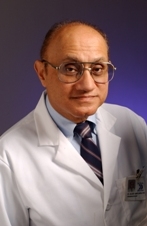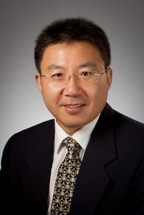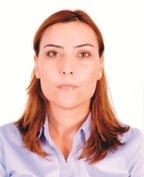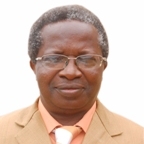The Society of Toxicology Education Committee is pleased to announce the selection of the Hosts for the 2016 Global Senior Scholar Exchange Program (GSSEP). Mohamed Abou-Donia, Duke University Medical Center, will be hosting Wafa Hassen from the Department of Cellular Physiology and Toxicology at the High Institute of Biotechnology of Monastir, Tunisia, and Weimin Gao, Texas Tech University, will host Oladipo Ademuyiwa, from the Federal University of Agriculture in Abeokuta, Nigeria. SOT provides funding for the Scholars to attend the SOT Annual Meeting, and both Scholars have submitted abstracts. GSSEP funding also supports the extended exchange visit to the campuses of the Hosts as well as travel funding for the Hosts to visit the campus of the Scholars during the next year.


Mohamed Abou-Donia Weimin Gao


Wafa Hassen Oladipo Ademuyiwa
Dr. Abou-Donia is the Director of the Neurotoxicology Laboratory at Duke University Medical Center. Work in his laboratory is directed toward understanding the basic mechanism by which chemicals, e.g., pesticides, solvents, industrial chemicals, heavy metals, drugs, and nerve agents, adversely affect the nervous system. Recently, he has been engaged in research to define nervous system injury resulting from occupational exposure to chemicals. He has extensive international experience, including a 2004 Fulbright Award to study the impact of pesticides on the environment in Egypt. His research has impacted public policy initiatives to regulate environmental and occupational exposure to hazardous chemicals. Also, he teaches a variety of toxicology-related courses to medical and graduate students.
Dr. Hassen’s research focuses on mechanisms of myeloma drug resistance and human disease related to mycotoxins in food. The possibility of pesticide contamination and adverse effects on health is an important problem in Tunisia and of interest to faculty in her department. This and other shared teaching and research interests will be the basis of a fruitful exchange.
Dr. Gao is Associate Chair, Department of Environmental Toxicology, in the Institute of Environmental and Human Health at Texas Tech University. The department/institute has a well-established research program in the areas of molecular toxicology, analytical toxicology, ecotoxicology, aquatic toxicology, and human health. In addition, a graduate research program is taught by faculty with expertise in molecular toxicology, analytical toxicology, human health, and other areas. Dr. Gao and other faculty are involved in global outreach and collaborative research in environmental contaminants and human health.
The research in Dr. Ademuyiwa’s department focuses on the mechanistic bases of the effects of xenobiotics on cellular metabolism in both humans and animals, particularly metals with potential occupational and environmental exposure such as lead, arsenic, cadmium, and mercury. These studies match with those at Texas Tech that include the environmental fate and toxic effects of some metals and thus provide a possible area of collaboration. The Federal University of Agriculture does not currently have a curriculum in toxicology so learning about the program at Texas Tech will be valuable.
This is the fifth year for the GSSEP. The primary goal of the GSSEP is to increase toxicology capacity in developing countries by providing professional opportunities for scientists through relationships supported by SOT. The Scholars who are selected are expected to build on this opportunity by strengthening toxicology within their universities and countries. Information about the previous exchanges is found on the GSSEP website. We encourage all potential Scholar and Host applicants to visit the website. The next deadline for Scholar applications is June 15, 2016.